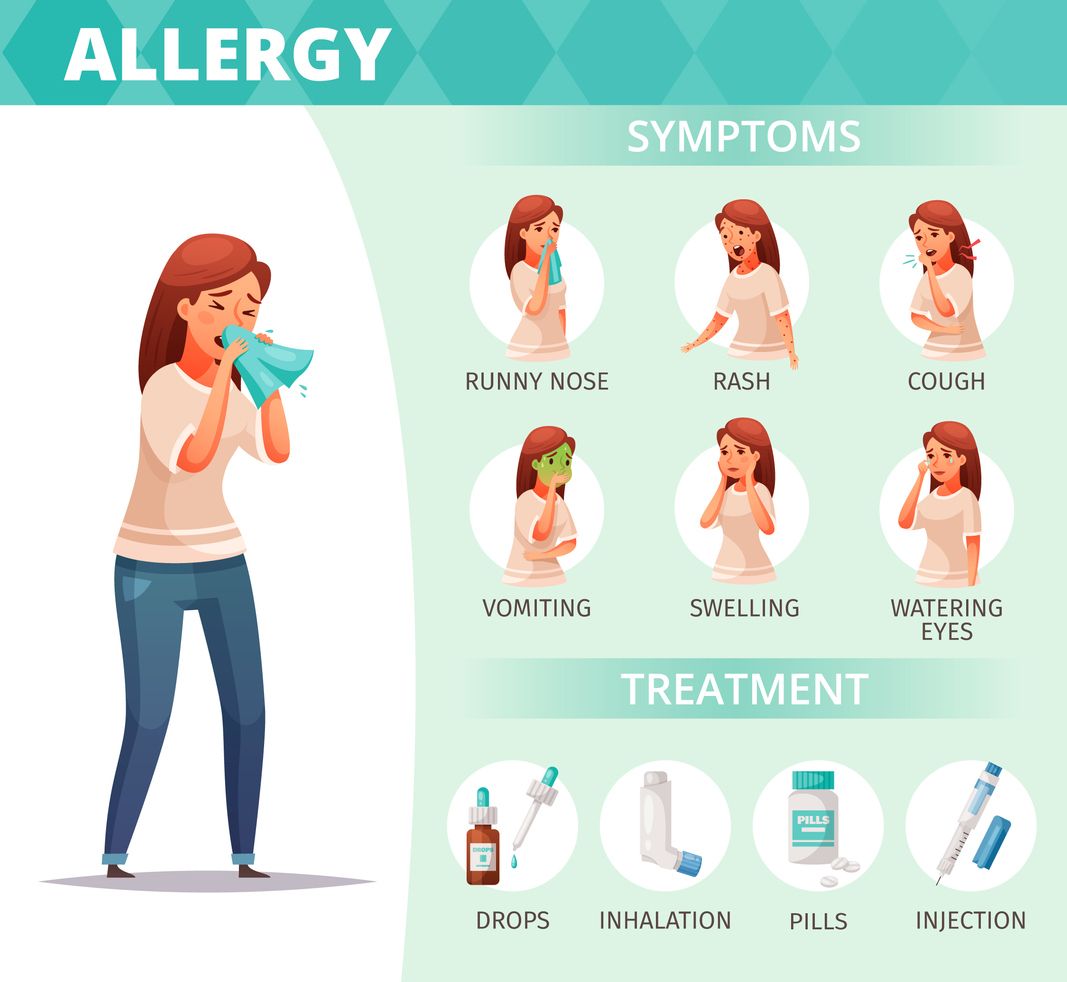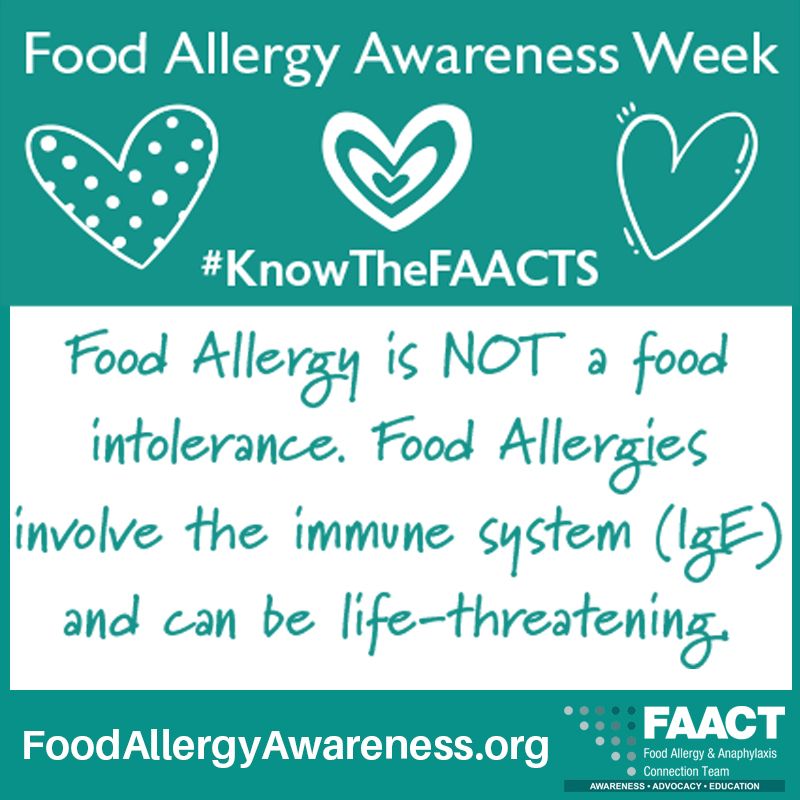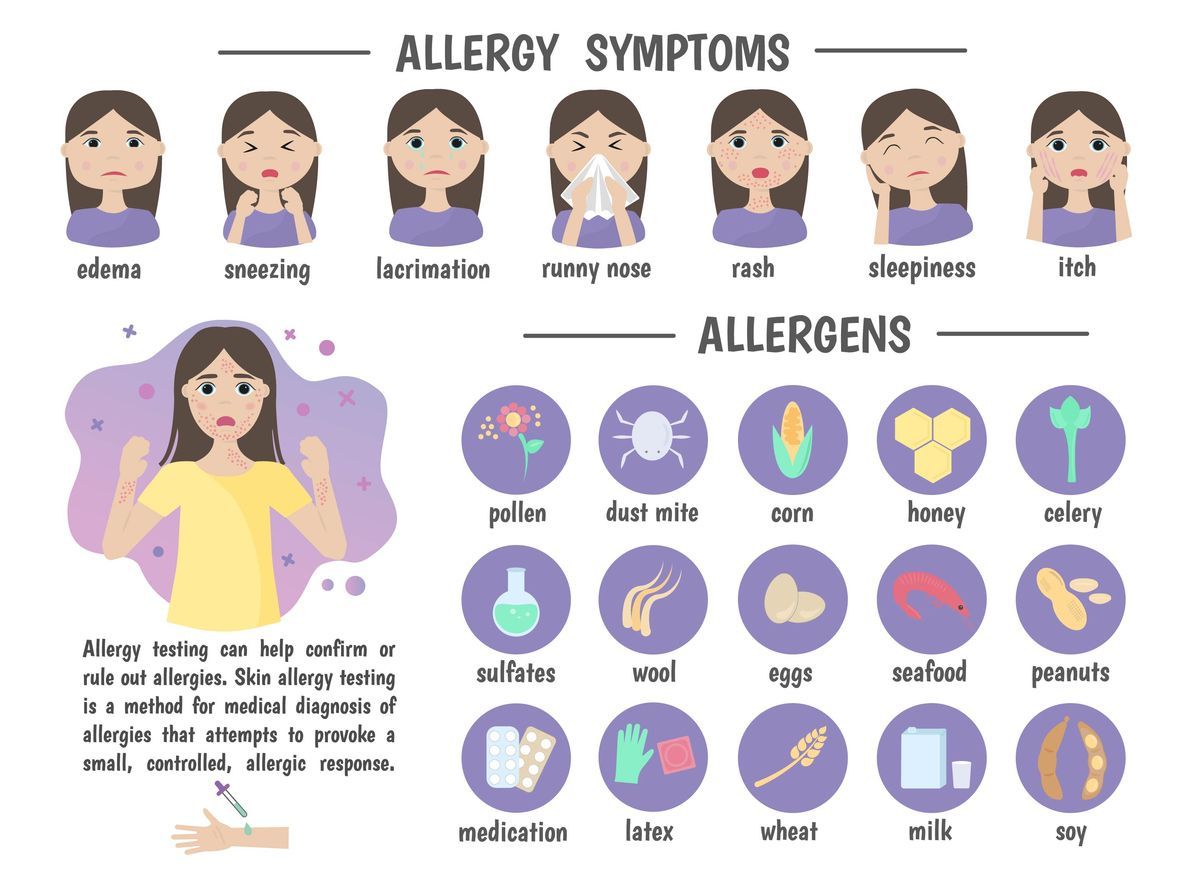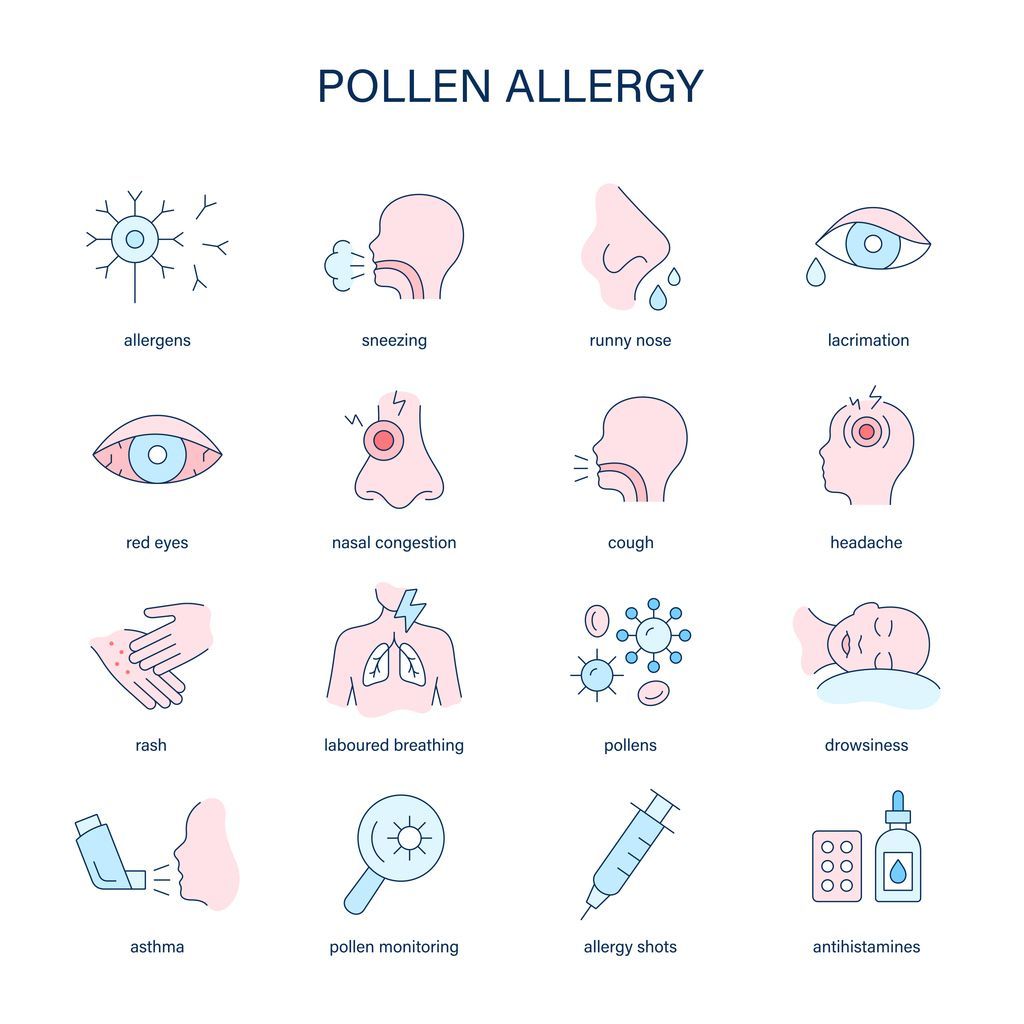Season’s Greetings!

What is an allergy?
How to tell if you have allergies and what can cause them.
Allergy and Immunology is a complex field that brings with it much confusion and mystery. Many are unsure about what an allergy is, and, often, the label is given to patients incorrectly. This can create problems when a patient must unnecessarily avoid foods, especially in a child where nutrition is essential. In other instances, a patient may be incorrectly labeled as allergic to penicillin, causing the patient to not be able to take this potentially life-saving drug when they have a severe infection.
There are many reasons why the public and, unfortunately, even the medical community lacks understanding about basic allergy and immunology concepts. Contributing factors like few board-certified allergists in the Des Moines area, misinformation from questionable sources, and allergy being a young field in medicine that has seen an explosion in research, making it difficult to keep up to date with new information. Given that allergic conditions affect a sizable portion of society, our clinic’s vision is to educate the public and medical community on how we can help patients in our specialty.
What are symptoms of allergies?
Patients often say they have been suffering from allergy symptoms for many years but have never been told that allergy treatment options are available. Environmental allergies can significantly impact a patient’s day-to-day quality of life. Some environmental allergens are indoors and outdoors and can include cats, dogs, dust mites, molds, grass, weeds and trees.
Common allergy symptoms include:
- Nasal congestion
- Sneezing
- Runny nose
- Throat clearing and itching
- Itchy eyes
- Shortness of breath
- Wheezing
- Hives and rashes
Patients may be given temporary allergy relief medications repeatedly with minimal improvement in symptoms. Sometimes patients will elect surgery when medical management can help without resorting to invasive procedures. Allergy testing can be performed to diagnose exactly what a patient is allergic to.
Can you develop allergies?
Allergic reactions to environmental allergens, foods, drugs and chemicals can also start at any time in a patient’s life. There is a misunderstanding that, if a person has been continuously taking a drug, eating a food, using a product, or being exposed to any allergen for most of their life, then they cannot become allergic. There is nothing in our bodies that remains the same throughout our lives. There is a beginning for all conditions that bother the human body, with a very small portion starting at birth, such as genetic defects, but the majority develop as we age.
For example, our skin develops wrinkles, bones and joints need replacement, poor eyesight and hearts start to weaken. Changes in our body start to develop with our exposure to the world, and the immune system is no exception to this rule. The memory of the immune system may decrease, causing new allergies, immunological disorders, or asthma to develop over time. A person can likewise grow out of an allergy. Not every child who has a milk allergy as an infant will have that milk allergy as a teenager. The vast majority of patients diagnosed with a penicillin allergy will no longer be allergic when tested later.
Looking for allergy relief? We can help.
Iowa Allergy is one of the few clinics in the entire state that offers oral allergy drops, along with traditional allergy treatments. We are also the only center in the state of Iowa to offer food desensitization for milk, eggs, and peanuts to children as young as 9 months!
If you have been suffering from allergy symptoms, asthma, or immunological disorders, contact our office today by calling or texting 515-410-9400. We would be honored to be a part of your care. Don't let allergies keep you from doing the things you love, call us instead!
@sneezynwheezy #Allergies #Allergist #immunology #immunology #allergyseason #allergyproblems #doctorsoftiktok #foryoupage #information #publicawarenessmessage
♬ original sound - OnlyMe1189
Meet Our Physicians












